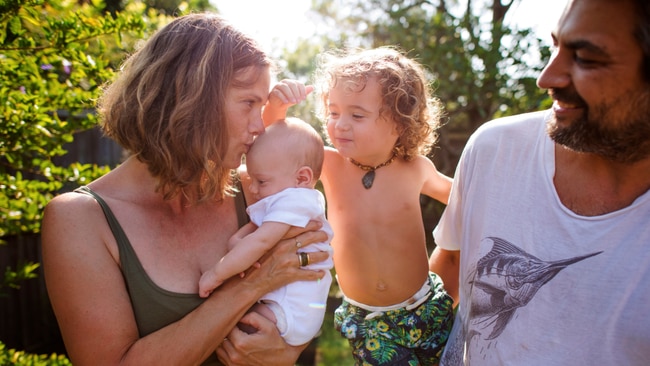How to handle family drama this holiday season
Avoid a less than festive feud
Lifestyle
Don't miss out on the headlines from Lifestyle. Followed categories will be added to My News.
Contrary to popular belief, it is possible to make it through the Christmas period without having a level 11 meltdown, experts say.
Festive family feuds can be commonplace this time of year and no, unfortunately, I don’t mean some Christmas version of the game show (although how good would that be?)
Instead, I am referring to the friction that seems to accompany many of us as we attend Christmas parties and events with our families like some Grinch-like and uninvited guests.
So, what’s exactly behind this seasonal tension? Well according to clinical psychologist and CEO of Relationships Australia, Elisabeth Shaw, it has a lot to do with what we also love about our family: our shared history.
Like what you see? Sign up to our bodyandsoul.com.au newsletter for more stories like this.
“There can be historic tensions which have been developed over many years, and which create a certain dread in coming together as they are seen to be 'unsolvable'. These might be based on a wide range of differences from personality clashes, entrenched judgements, values clashes or abusive behaviours,” she says.
Additionally, issues related to the event itself - hosting, roles each family member plays, favouritism and equity, behaviour (especially with alcohol), gift giving and how to manage other stakeholders (i.e., the in-laws) - can also lead to tension.
“It can mean that people start the day with resentment, and this can become visible very quickly,” Shaw says.
But we can navigate tricky relationships with family and bring the ‘merry’ to our Christmas (or at least do our best) says Shaw.

Show some self-awareness
The first step starts with us and our self-awareness.
“Often, we focus on the problem of other people, and how to respond to them,” Shaw says.
“Instead ask yourself: why am I so provoked/worried/ anxious? What can I do about how I manage myself and the situation on the day so that I leave in good shape?”
Communicate your concerns
Secondly, it is valuable to talk about family events from a position of curious enquiry.
“Check out if it is true that the event can’t be influenced. See what room there is to move with the arrangements so everyone has the best possible experience. If you worry about being targeted in some way, have an escape plan,” Shaw says.
To create this escape plan, Shaw says seeking help from other family members can be helpful.
“Talk to family members about helping you smooth things over, distract or back you up, not to draw battle lines, but just to be protective of all concerned. Ideally, if there is something that has happened in the past, reach out and address that before the big day.”
And while it may be fitting to apologise, this isn’t always the case, but you can still constructively work together to make it through the event feud-free.
“Say “I want us to have a good day, what do we need to do to make sure that happens?” or “I want to make sure we don’t fall into that same argument, can you help with that?” can be a way to get different engagement,” Shaw says.

Switch up the scenery
Change can be as good as a holiday or in this case, good for the holiday.
“If one of the things you are grappling with is obligations to other sides of the family, talk about this openly with siblings and parents,” Shaw suggests.
“Just because you have always done Christmas lunch, for example, it may be that there needs to be a review if you are going to attend. Some families agree with a swap of one year lunch one year dinner, just to make sure everyone gets a turn and everyone can attend.”
If this doesn’t work though, or your family refuses to budge, Shaw says having a plan b can be a good idea.
“It may be that you have to say you can only attend every second year and will see them later in the day. Accepting that not everyone can get what they want, and handling the guilt and upset that causes, is all part of the navigation.”
And the good news, Shaw says, is that sometimes the events can surprise you and help resolve conflict too.
“If you are lucky – the end-of-year festivals can become ice-breakers for people not speaking,” she says.
So, if you are approaching the festive season with trepidation, try and remember that it can be, sometimes, the most magical time of year!
More Coverage
Originally published as How to handle family drama this holiday season





